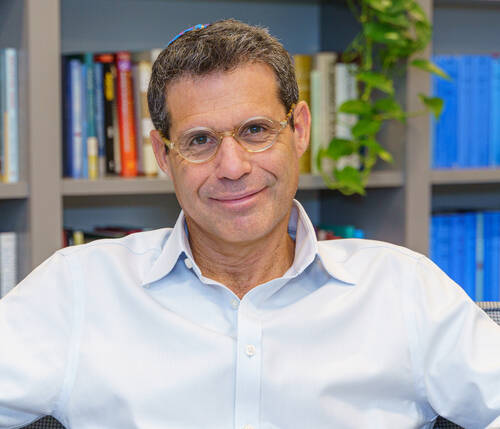Kvelling
Kvelling

During my Rosh Hashanah morning sermon, I referred to the concept of Collective Effervescence as one of the major causes of awe. The term was coined in the early 20th century by the French Jewish sociologist Émile Durkheim to describe the sense of energy and harmony people feel when they come together in a group around a shared purpose. Collective Effervescence is the synchrony we feel when we slide into rhythm with strangers on a dance floor, colleagues in a brainstorming session, singing at a religious Service, or doing the wave at a baseball game.
Having the idea of Collective Effervescence in my mind during the Service, I couldn’t help but notice the moments of Collective Effervescence, as we all joined in on the chorus of Hallelujah and when we said the Sh’ma as one voice. These moments were indeed powerful, especially after three years of a scarce in-person attendance. But then I noticed an even stronger emotion which I thought of as Collective Kvell and was wondering if it is a sociological term. After the Holy Day I did quick research and discovered that when translating the term to English, Collective Pride is indeed a recognized phenomenon.
The academic definition of Collective Pride is “the widespread positive emotion of a crowd celebrating a sporting or political triumph (i.e., occasions that people recall when something special or important occurred or was achieved which is taken by group members to ‘say some-thing positive about us’ and sensed by a person like a successful sports representative when he or she is the object of group pride and admiration”.
On Rosh Hashanah we had neither a political leader nor a famous athlete on the bima, but when our Junior Song Leader Jordan Weinbaum led the prayer of Sim Shalom and when our baal tokea (master of the blast—yes, this is the real term), Nate Goldin, blew the t’kia gdola (the long blast) for 50 seconds, the entire congregation experienced a Collective Kvell.
I remember many years ago reading in a church magazine an article that asked why the people in small churches care about their pastor’s sermon when they can tune in to the televised celebrity preachers of the mega churches. The answer was that as good as the famous preachers on TV are, the congregants feel a sort of ownership in their church and their pastor that they can never feel for a mega church on TV.
Standing on the bima, looking at all of you, and then looking at Cantor Marcy, our musicians, the media team, and the ushers filled my heart with an enormous feeling of collective and personal kvell.
May we all have a year filled with many opportunities for kvelling.
Thu, July 31 2025
6 Av 5785
Upcoming Events
-
Thursday ,
JulJuly 31 , 2025TODDLER ENRICHMENT PROGRAM
Thursday, Jul 31st 10:00a to 11:15a
-
Thursday ,
JulJuly 31 , 2025Canasta
Thursday, Jul 31st 1:00p to 3:00p
-
Friday ,
AugAugust 1 , 2025TODDLER ENRICHMENT PROGRAM
Friday, Aug 1st 10:00a to 11:15a
-
Friday ,
AugAugust 1 , 2025Shabbat Service
Friday, Aug 1st 6:30p to 7:30p
-
Wednesday ,
AugAugust 6 , 2025Mah Jongg
Wednesday, Aug 6th 1:00p to 3:00p
-
Thursday ,
AugAugust 7 , 2025Canasta
Thursday, Aug 7th 1:00p to 3:00p
-
Friday ,
AugAugust 8 , 2025Shabbat Service
Friday, Aug 8th 6:30p to 7:30p
-
Saturday ,
AugAugust 9 , 2025Men's Club Summer Dinners at Cafe Sole
Shabbat, Aug 9th 6:30p to 7:30p
-
Monday ,
AugAugust 11 , 2025BOOK CLUB - THE OVERSTORY - Richard Powers
Monday, Aug 11th 10:30a to 12:00p
-
Wednesday ,
AugAugust 13 , 2025Mah Jongg
Wednesday, Aug 13th 1:00p to 3:00p
Update this content.
Come Together
Something meaningful and dynamic is happening here at Temple Beth Am. It springs from the warmth of our welcome and the energy of our actions. We call it: Kulanu - All of Us Together.
Join UsUpcoming Events
-
Thursday ,
JulJuly 31 , 2025TODDLER ENRICHMENT PROGRAM
Thursday, Jul 31st 10:00a to 11:15a
-
Thursday ,
JulJuly 31 , 2025Canasta
Thursday, Jul 31st 1:00p to 3:00p
-
Friday ,
AugAugust 1 , 2025TODDLER ENRICHMENT PROGRAM
Friday, Aug 1st 10:00a to 11:15a
-
Friday ,
AugAugust 1 , 2025Shabbat Service
Friday, Aug 1st 6:30p to 7:30p
-
Wednesday ,
AugAugust 6 , 2025Mah Jongg
Wednesday, Aug 6th 1:00p to 3:00p
Privacy Settings | Privacy Policy | Member Terms
©2025 All rights reserved. Find out more about ShulCloud

